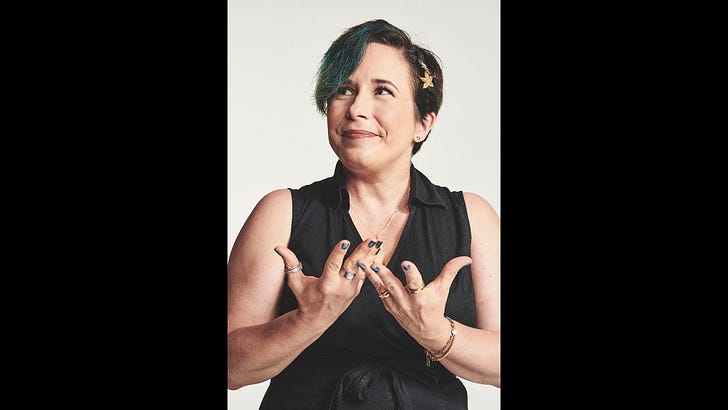"The Metaphor Becomes Real." A Chat with Fran Wilde, Managing Editor of The Sunday Morning Transport
"Literature of the possible..."
Happy Monday! I come with tidings of a brand-new editor interview, freshly wrapped!
Real quick though, before I share details from today’s interview, I want to let you know the date and time for the interview with Christopher Boucher, Editor of Post Road, is now live. It will be on February 28th at 2:30 pm est. You can learn more about that and register here.
Onward!
Today I had the pleasure of speaking with Fran Wilde, Managing Editor of The Sunday Morning Transport.
Sunday Morning Transport readers are authors, thinkers, scientists, artists, dreamers. With a single science fiction or fantasy short story each Sunday, we connect across space and time. We deliver, right to your inbox: a moment of whimsy; a deep dive into an unknown world; a single illuminating transformation; a vibrant community of readers and writers built around the best new speculative stories each week.
Fran and co-Editor Julian Yap founded the magazine in 2021. The vision was simple: They wanted to have the experience of reading one new short story, delivered in their inbox, once a week. They launched the Substack-based magazine with the mission of creating exactly that, with each story under 3,500 words. They have since gone on to publish roughly 50 stories per year.
This was my first time interviewing the editor of a “genre” magazine, so I was eager to learn more about the various terms—fantasy, sci-fi, speculative, slipstream…I was not surprised to hear Fran say that the boundaries between these categories, and even the boundaries between genre work and “literary” work are often blurred. “The literary canon absorbs genre that it likes,” she explained, citing 100 Years of Solitude and Frankenstein as just two examples.
Fran described sci-fi as “the literature of the possible” and fantasy as “the literature of the impossible.” In sci-fi, “the metaphor becomes real” and “setting is the lens” to view the story. Sci-fi is “an exploration of what it means to be human in the presence of evolving technology.”
As there is so much current focus on technological advancements, I was particularly curious to hear what people are writing about these days. Have we arrived at the future we were all warned about in 1950s robot movies? Have we entered the techno-dystopia sci-fi writers of yesteryear told us about? If so, how do today’s sci-fi writers explore the future? What future is left to explore?
Big questions! Long story short, yes, Fran assured me, there is still plenty to explore in science fiction. Check out the magazine to see what.
SMT does not accept unsolicited submissions. All work is solicited by the editors. Fran diligently reads other sci-fi and fantasy magazines to find authors she’d like to publish.
How, then, might new writers get her attention? What about the writers who really, really want to submit? Is there any room for unpublished writers to send work here?
At this time, the best way to make contact with these editors would be through publishing in other similar magazines. You can also find Fran at Worldcon, which she regularly attends. In the meantime, you might also wish to join their community of readers to get a feel for what they do.
To all who came out today to participate, thank you! Your faces are always the chirping birds in my cool winter morning.
And, of course, thank you to Fran for taking us behind the scenes of another lovely little magazine.
Happy viewing!
Views expressed by any guest during an interview do not necessarily reflect my own.
For anyone interested, here are some of the books and authors cited in the conversation:
Snow Crash by Neal Stephenson
The Best American Science Fiction and Fantasy 2016, Edited by Karen Joy Fowler
And a few authors Fran especially recommends for anyone new-ish to sci-fi:
Ken Liu, Martha Wells, Ann Leckie, Emily Tesh



